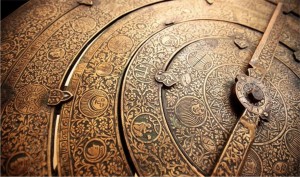
“The technology industry would not exist without the contributions of Arab mathematicians,”
says Carly Fiorina.
In one of her lectures, Carly Fiorina, the CEO of Hewlett-Packard, said: ‘I’ll end by telling a story.’ And this is the story:
‘There was once a civilization that was the greatest in the world. It was able to create a continental super-state that stretched from ocean to ocean, and from northern climes to tropics and deserts. Within its dominion lived hundreds of millions of people, of different creeds and ethnic origins.
One of its languages became the universal language of much of the world, the bridge between the peoples of a hundred lands. Its armies were made up of people of many nationalities, and its military protection allowed a degree of peace and prosperity that had never been known. The reach of this civilization’s commerce extended from Latin America to China, and everywhere in between.
And this civilization was driven more than anything, by invention. Its architects designed buildings that defied gravity. Its mathematicians created the algebra and algorithms that would enable the building of computers, and the creation of encryption. Its doctors examined the human body, and found new cures for disease. Its astronomers looked into the heavens, named the stars, and paved the way for space travel and exploration.
Its writers created thousands of stories. Stories of courage, romance and magic. Its poets wrote of love, when others before them were too steeped in fear to think of such things.
When other nations were afraid of ideas, this civilization thrived on them, and kept them alive. When censors threatened to wipe out knowledge from past civilizations, this civilization kept the knowledge alive, and passed it on to others.
While modern Western civilization shares many of these traits, the civilization I’m talking about was the Islamic world from the year 800 to 1600, which included the Ottoman Empire and the courts of Baghdad, Damascus and Cairo, and enlightened rulers like Suleiman the Magnificent.
Although we are often unaware of our indebtedness to this other civilization, its gifts are very much a part of our heritage. The technology industry would not exist without the contributions of Arab mathematicians.’
________________
Reference: A lecture titled: What does our future demand of leaders today?
* Who is Carly Fiorina?
Carleton S. (Carly) Fiorina is chairman and chief executive officer of Hewlett-Packard Company. HP is a leading global provider of computing and imaging solutions and services and is focused on making technology and its benefits accessible to all.
Since joining HP in July 1999, Fiorina has led HP’s reinvention as a company that makes the Internet work for businesses and consumers. Under her leadership, HP has returned to its roots of innovation and inventiveness and is focused on delivering the best total customer experience.
Prior to joining HP, she spent nearly 20 years at AT&T and Lucent Technologies, where she held a number of senior leadership positions in sales and marketing. As president of Lucent’s Global Service Provider Business, she expanded the company’s international business and spearheaded the planning and execution of its initial public offering and subsequent spin-off from AT&T.
Fiorina holds a bachelor’s degree in medieval history and philosophy from Stanford University; a master’s degree in business administration from the Robert H. Smith School of Business at the University of Maryland at College Park, Md.; and a Master of Science degree from MIT’s Sloan School. In July 2001, she was named an Honorary Fellow of London Business School. She serves on the board of Cisco Systems and was previously a board member of the Kellogg Company and Merck & Company.
